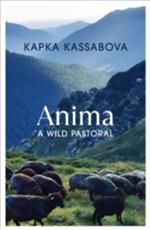In Anima, Kapka Kassabova introduces us to the ‘pastiri’ people, the shepherds struggling to hold on to an ancient way of life in which humans and animals exist in profound interdependence. Following her three previous books set in the Balkans, and with an increasing interest in the degraded state of our planet and culture, Kassabova reaches further into the spirit of place than she ever has before. In this extraordinary portrayal of pastoral life, she investigates the heroic efforts to sustain the oldest surviving breeds of our domesticated animals, and she shows us the epic, orchestrated activity of transhumance, the seasonal movement, on foot, of a vast herd of sheep, working in tandem with dogs. She also becomes more and more attuned to the isolation and sacrifices inherent in the lives shaped by this work. Weaving together lyrical writing about place with a sweeping sense of the traumatic histories that have shaped this mountainous region of Bulgaria, Kassabova shows how environmental change and industrial capitalism are endangering older, sustainable ways of living, and by extension she reveals the limited nature of so much of modern life. But shining through Kassabova’s passionate, intimate response to the monoculture that is ‘Anthropos’ is her indelible portrait of a circulating interdependence of people and animals that might point to a healthier way to live.

Anima: a wild pastoral
ISBN: 9781787333277
Format: Hardback
Publisher: Jonathan Cape & Bh – Trade (UBD)
Origin: GB
Release Date: October, 2024


